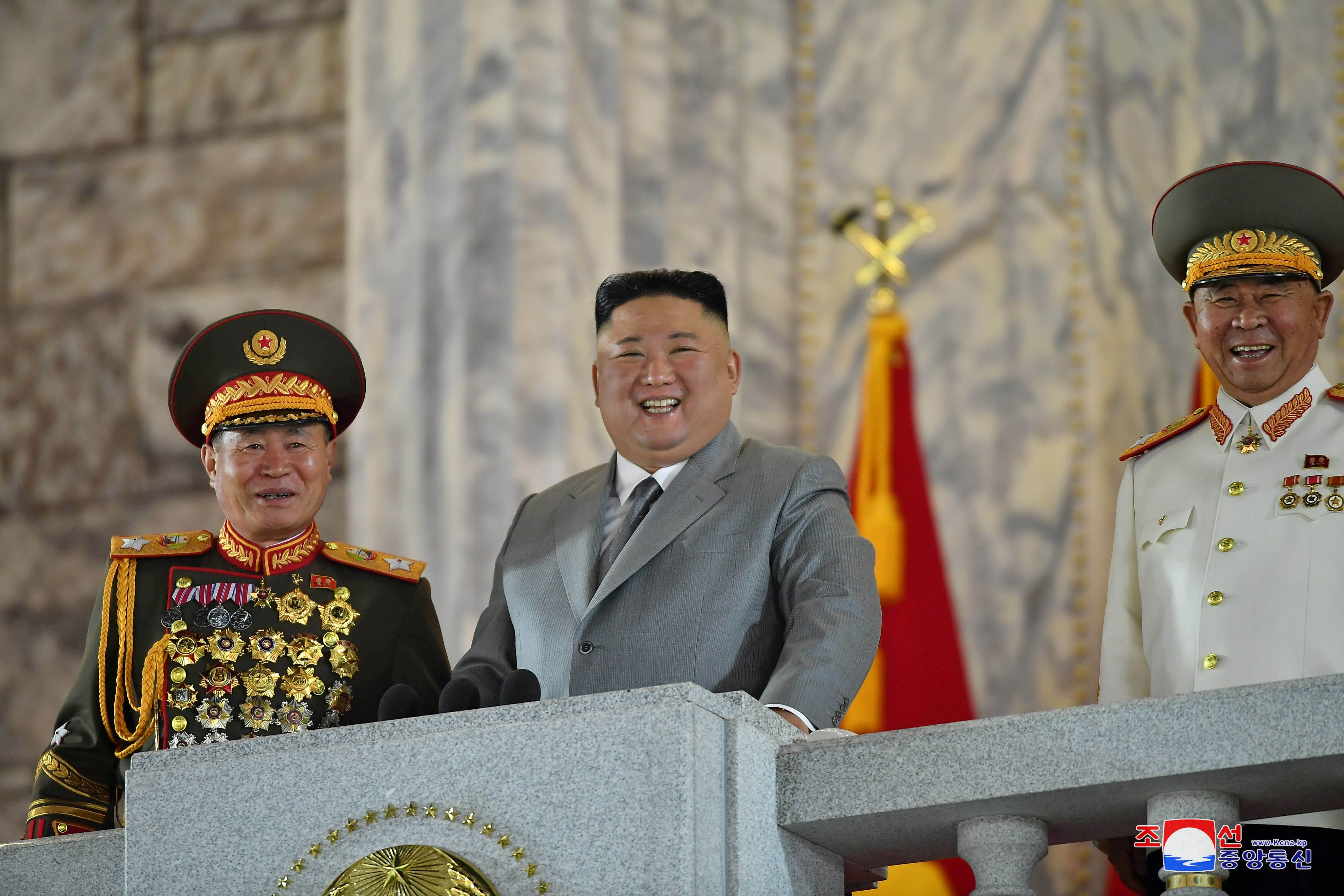North Korea's massive missile: "We will continue to strengthen the war deterrent," North Korean leader Kim Jong-un said at a military parade Saturday as his armed forces paraded a new intercontinental ballistic missile, the largest-ever rolled out by Pyongyang. Observers were quick to weigh in, saying that though the missile had not been tested yet, it was likely more powerful than the North's previous weapons, and could potentially travel further and inflict more damage. As is always the case with the opaque North Korean regime, it's unclear whether this display — set to coincide with the 75th anniversary of the North's ruling Workers' Party — was a blusterous show of strength by Kim amid failed negotiations with the US and a faltering economy, or whether there's something more sinister at play. Either way, analysts agree, the unveiling of the large weapon is a threat to the US' nuclear deterrence capability.
A tenuous truce in Nagorno-Karabakh: A temporary truce that raised hopes of an end to a weeks-long bloodbath between Armenians and Azeris in the disputed Nagorno-Karabakh region has already been breached, with both sides blaming the other for violating the humanitarian ceasefire. The truce, brokered by Moscow, was supposed to involve the exchange of prisoners with the hope of paving the way for more dialogue. It comes after the recent round of fighting expanded beyond the rugged highland region to civilian enclaves near the border, resulting in scores of civilian deaths on both sides. Meanwhile, around 70,000 people have already been displaced in the latest escalation — the most intense confrontation in the South Caucasus (where Armenia and Azerbaijan are located) since the two sides fought a years-long war in the 1990s that killed 30,000 people. Now, the temperature only seems to be rising despite the nascent truce: Turkey — which backs Azerbaijan — came in hot on Monday, threatening that the Russian-brokered ceasefire was Armenia's "last chance" to withdraw its forces.
UK's COVID mess: As coronavirus cases continue to surge in the UK, Prime Minister Boris Johnson implemented a new tiered system of lockdown measures, which aims to target coronavirus hotspots with stricter rules while avoiding the uniform lockdowns seen over the spring. Britain, which has one of the highest COVID-19 death rates per capita in the world, has thus far implemented a byzantine lockdown system and inconsistent social distancing guidelines that many Britons have been accused of flouting (including government officials). In recent days, people have rallied against the new measures, suggesting that the country is suffering from what some experts have called "pandemic fatigue." Indeed, part of this can be attributed to Britons' lack of trust in the government's ability to manage the crisis: confidence in the government's handling of the pandemic currently stands at 31 percent, down from 72 earlier in the year (that's the lowest approval of any government polled by YouGov.) Additionally, critics also say that there are no adequate measures now in place to protect laid-off workers. As a result, the country's hospitality industry has threatened legal action against the British government over the latest restrictions.
More For You
At the 2026 Munich Security Conference, entrepreneur and Project Liberty founder Frank McCourt makes the case that the internet, and the AI systems rapidly reshaping it, must be redesigned to serve people, not platforms.
Most Popular
At the 62nd Munich Security Conference, Parag Khanna, founder and CEO of AlphaGeo, says globalization isn't dead, it's evolving. Speaking with GZERO’s Tony Maciulis, he explains that countries are forming flexible alliances that expand and shrink based on their interests. “You’d rather be in the tent...if it suits your interest than not in it,” Khanna notes, highlighting how the US, Europe, and Asia are adapting to shifting global priorities.
Sovereignty has become one of the most powerful, and least defined, words in tech policy. At the 2026 Munich Security Conference, SAP global head of government affairs, Wolfgang Dierker, explains why governments and enterprise customers are demanding more control over their data, cloud infrastructure, and AI systems amid rising geopolitical uncertainty.
On the sidelines of the 2026 Munich Security Conference, Annemarie Hou, Executive Director of the United Nations Office of Partnerships, joined Tony Maciulis to discuss the power of women leaders in global decision-making.
